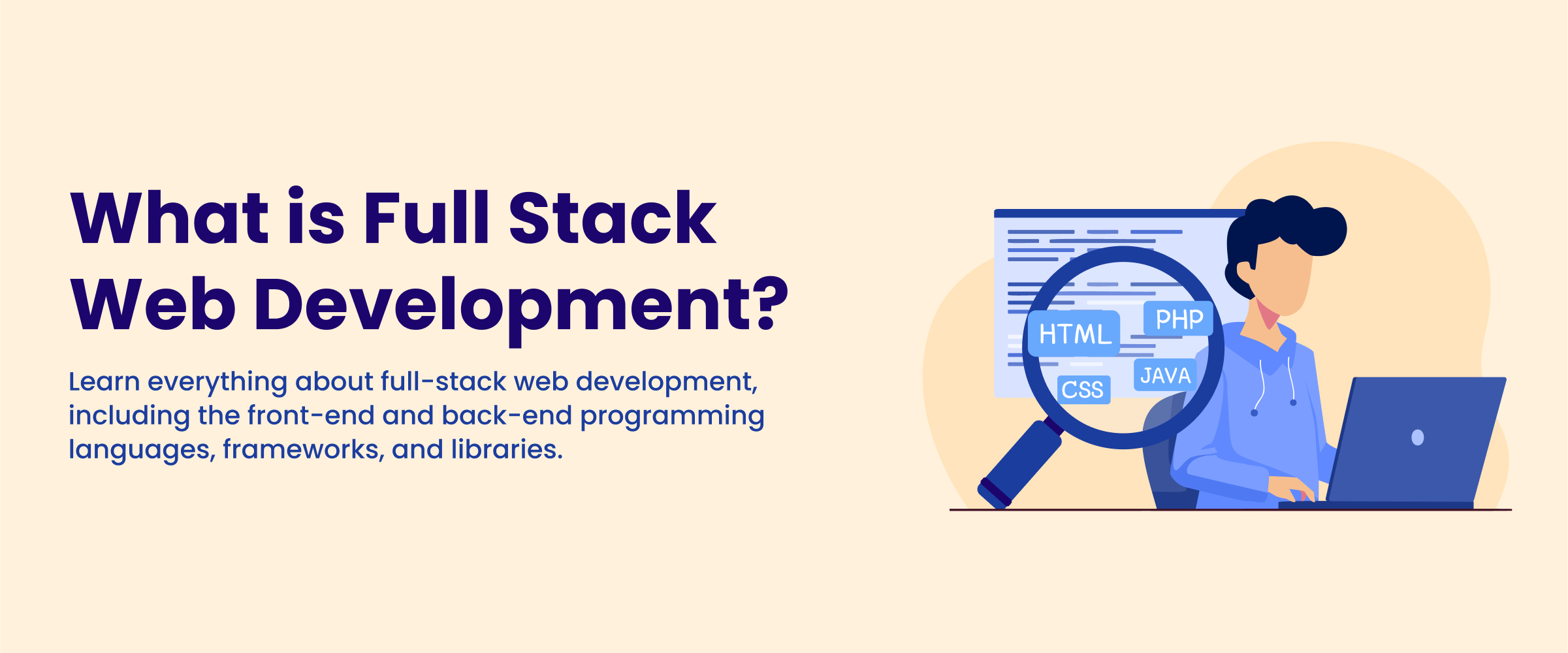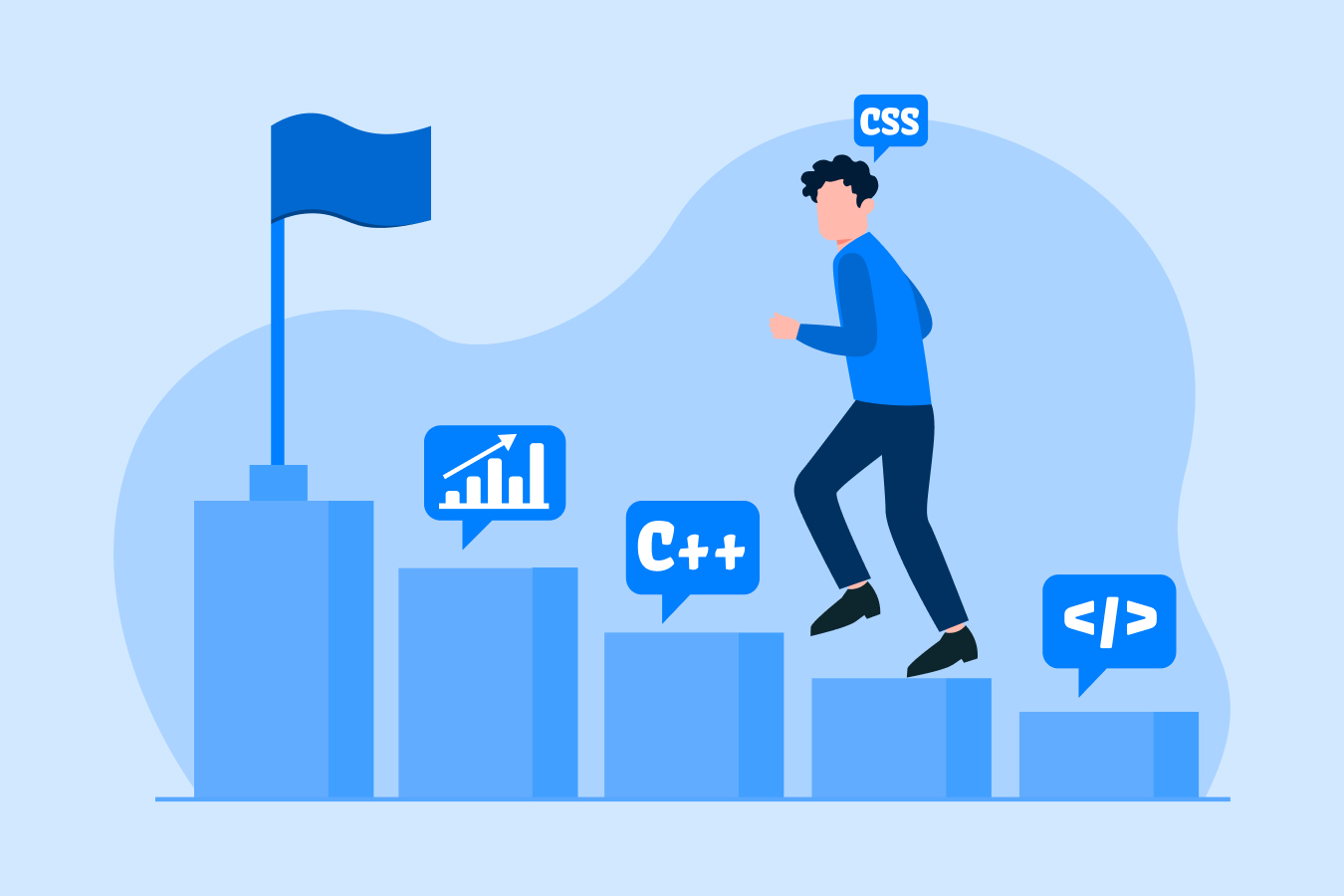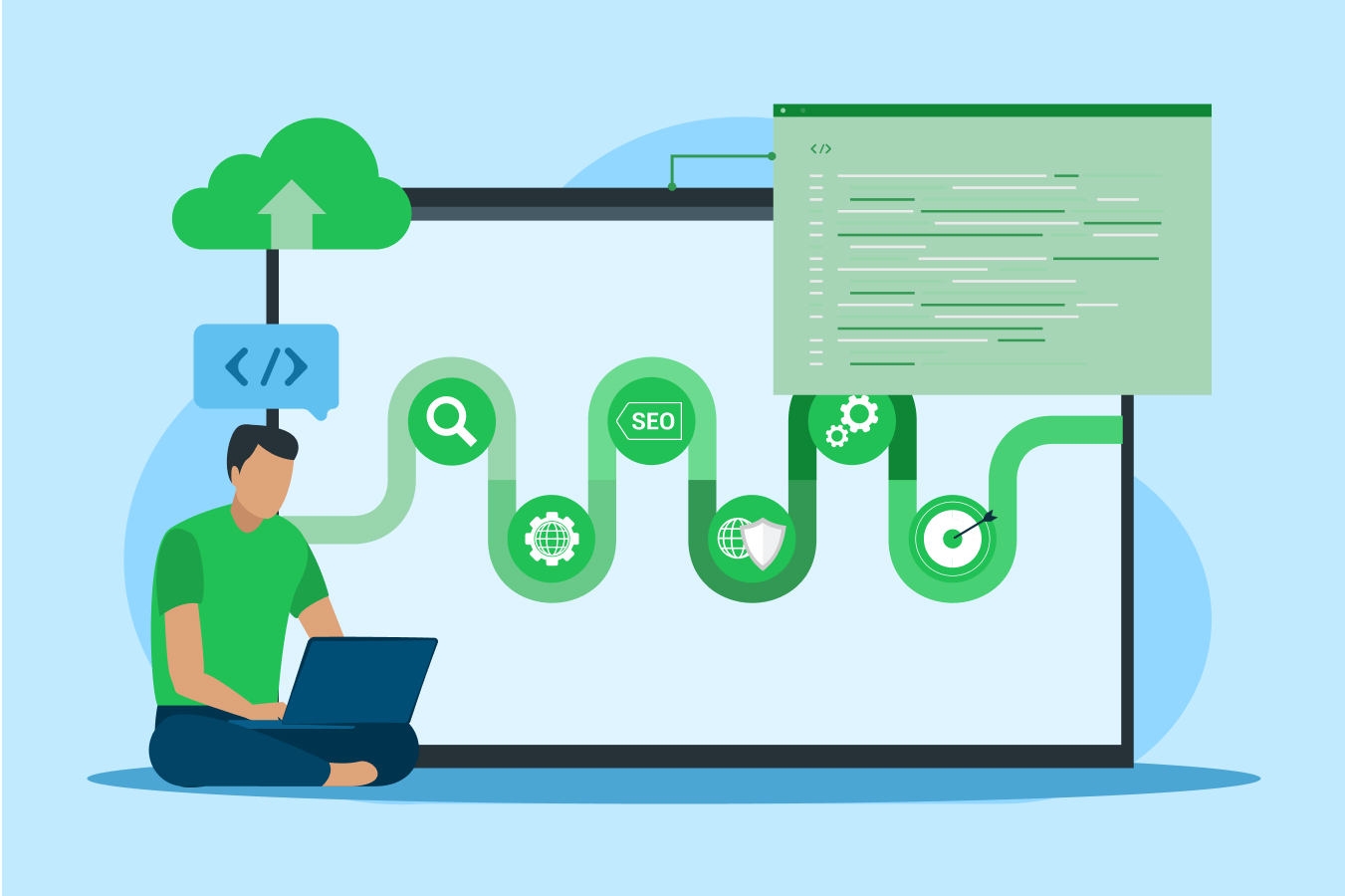How to Become a Full Stack Developer?: A Complete Guide
The tech industry is booming at an unprecedented rate, driven by constant innovation and development in new technologies. This highlights the increasing popularity and demand for full-stack developers to maintain websites and web applications. Employers actively seek to hire full-stack developers because of their proficiency in front-end and back-end development.
If you are a prospective developer, explore this comprehensive guide on how to become a full-stack developer. Navigate career roadmap, various job roles, required skills and qualifications, and prospects in full-stack development.
Who is a Full Stack Developer?
A full-stack developer is a skilled professional who is proficient in both front-end and back-end technologies. They are experts in designing, developing, and deploying complete web applications. Full-stack developers possess a broad range of skills that enable them to handle different aspects of the development process, from designing user interfaces to optimizing backend performance.
Here is a list of key technical responsibilities that a full-stack developer carries out.
- Create and design user-friendly interfaces with JavaScript, HTML, and CSS.
- Develop aesthetically pleasing and responsive layouts to improve user experience.
- Work with front-end frameworks and libraries like Angular, Vue, and React.js.
- Create streamlined and effective code for both front-end and back-end parts.
- Develop server-side programs and APIs in Python, Ruby on Rails, and Node.js.
- Manage database integration and storage management with tools, such as PostgreSQL, MongoDB, and MySQL.
How to Become a Full-Stack Developer?
The key to becoming a full-stack developer is to have a strategic roadmap for a full-stack developer to guide your progression. Here’s a breakdown of the essential steps you should take to pursue a career in full-stack development.
1. Acquire the Right Skills and Educational Qualifications
The future of full-stack developers depends on their skills and expertise. You should possess the necessary educational qualifications and skill set to manage work responsibilities well and excel in this role. Here are some key skills and educational requirements essential to apply for full-stack developer jobs.
Key Skills
A full-stack developer requires technical proficiency in the following areas:
- Master Programming Languages: Obtain proficiency in HTML, CSS, JavaScript, and server-side languages like Node.js, Python, or Ruby on Rails.
- Learn Front-End Frameworks and Libraries: It is important to learn the use of front-end development frameworks and libraries like React.js, Angular, or Vue.js. These tools streamline development and offer reusable components for faster, more efficient web building.
- Obtain Knowledge of Database Management Systems: Familiarize yourself with database management systems (DBMS) like MySQL, MongoDB, or PostgreSQL. These systems store and organize website data, allowing for efficient retrieval and manipulation.
- Gain Understanding of Version Control Systems: Understand version control systems like Git to track code changes, collaborate effectively on projects, and revert to previous versions if needed. Develop proficiency in DevOps principles to automate tasks like deployment and infrastructure management, freeing up time for core development activities.
- Become Proficient in DevOps and Deployment: Familiarize yourself with DevOps principles and tools, such as Docker, Kubernetes, and continuous integration/continuous deployment (CI/CD) pipelines. Understanding these concepts will enable you to automate deployment processes and ensure the smooth operation of web applications.
- Cultivate Skills Beyond Technical Expertise: Hone your problem-solving skills to identify and overcome technical challenges. Develop strong communication skills and foster teamwork to collaborate effectively with designers, clients, and other developers.
Educational Qualifications
A formal degree in computer science or a related field can be beneficial to start your career in full-stack development. However, you can also pursue a full-stack development course with a placement. By taking this course, you can equip yourself with industry-relevant skills and knowledge and get a placement offer to kickstart your career.
2. Build Your Portfolio
Create a portfolio showcasing your skills and projects to demonstrate your expertise to potential employers. Include a variety of web development projects, from simple websites to complex web applications. You can build either a physical or online portfolio. GitHub is a popular platform to maintain your projects and share them. If you wish to learn how to build a portfolio online, you can take up a Git and GitHub course.
3. Gain Experience Through Internships or Entry-Level Jobs
Seek internships or entry-level positions in companies or startups to gain practical experience and exposure to real-world projects. This hands-on experience will further enhance your skills and knowledge.
You can register on online hiring platforms like Internshala and browse through the latest full-stack development internships or fresher jobs according to your preferences. Additionally, you can request your employer for a letter of recommendation to add to your future job applications.
4. Focus on Continuous Upskilling
Stay updated with the latest trends and technologies in the field of full-stack development. Attend workshops, participate in online courses, and engage with developer communities to continuously upskill and expand your knowledge.
Career Opportunities in Full Stack Development
The full-stack development field offers jobs with competitive salaries and career advancement opportunities. Here are some of the job roles you can apply for:
- Front End Developer
- Back End Developer
- Web Developer
- Full Stack Architect
- Python Developer
- Database Architect
- Web Application Developer
- Mobile Application Developer
- Game Designer
- Web Designer
The Future of Full Stack Development
As technology continues to advance at a rapid pace, the demand for skilled full-stack developers is expected to soar. The versatility and proficiency of full-stack developers make them indispensable assets in the ever-changing tech landscape. Here are some key factors contributing to the promising future scope of full-stack developers:
- Rapid Technological Advancements: With new frameworks, tools, and technologies emerging regularly, full-stack developers should stay agile and adaptable to keep up with industry trends.
- Growing Demand for Full Stack Expertise: Companies across various industries are seeking multifaceted developers who can handle both front-end and back-end tasks efficiently. The ability to oversee the entire development process from start to finish is highly valued in today’s competitive job market.
- Opportunities for Innovation and Creativity: Full-stack developers have the opportunity to work on diverse projects and contribute to innovative solutions. Whether it’s building scalable web applications, implementing cutting-edge features, or optimizing performance, there is no shortage of exciting challenges to tackle in this field.
- Remote Work and Freelancing Opportunities: The rise of remote work and freelance opportunities has opened up new avenues for full-stack developers to work flexibly and collaborate with teams worldwide. With the right skills and experience, you can explore remote job opportunities or even embark on freelance projects to expand your horizons.
Conclusion
The journey of how to become a full-stack developer requires dedication, perseverance, and a thirst for continuous learning. By following the full-stack developer roadmap outlined in this guide and staying abreast of industry trends, you can position yourself for success in this dynamic and rapidly evolving field. The full-stack developer’s future scope brims with possibilities, and with the right mindset and determination, you can carve out a fulfilling and prosperous career in this ever-expanding realm of technology.
FAQs
To become a full-stack developer, you need a strong understanding of both front-end and back-end technologies. This includes proficiency in programming languages, such as HTML, CSS, JavaScript, and server-side languages like Node.js, Python, or Ruby on Rails. Additionally, you should be familiar with databases, and version control systems, and have a grasp of DevOps principles for deployment and automation.
The time it takes to become a full-stack developer varies depending on individual circumstances, such as prior experience, learning pace, and the resources available. Generally, it can take anywhere from six months to a few years to acquire the necessary skills and experience. However, with dedicated effort and consistent practice, you can accelerate your learning process and transition into a full-stack developer role sooner.
Yes, it’s possible to learn full-stack development on your own through self-study and online resources. There are numerous online courses, tutorials, and coding boot camps available that cover both front-end and back-end technologies. By leveraging these resources, building projects, and practicing regularly, you can gain the skills and knowledge required to become a proficient full-stack developer.
The salary of a full-stack developer varies depending on factors, such as location, experience, and the specific industry or company. On average, full-stack developers can earn competitive salaries, often ranging from ₹6 LPA to ₹20 LPA. However, salaries can vary significantly based on individual qualifications, the demand for full-stack developers in the job market, and other factors.
Python is considered to be relatively easier to learn compared to some other programming languages. Its simple syntax and readability make it an excellent choice for beginners entering the world of full-stack development. Many popular frameworks and libraries, such as Django and Flask, enable developers to build robust back-end systems using Python. While learning any new technology requires dedication and practice, Python’s accessibility can make the journey to becoming a full-stack developer smoother for many learners.
Yes, a non-IT person can learn full-stack development with dedication and commitment to learning. While a background in computer science or IT may provide some foundational knowledge, it’s not a strict requirement for becoming a full-stack developer. Many successful full-stack developers come from diverse backgrounds, including fields like mathematics, engineering, and even humanities. With the availability of online resources and coding boot camps designed for beginners, individuals from non-IT backgrounds can acquire the necessary skills to embark on a career in full-stack development.







